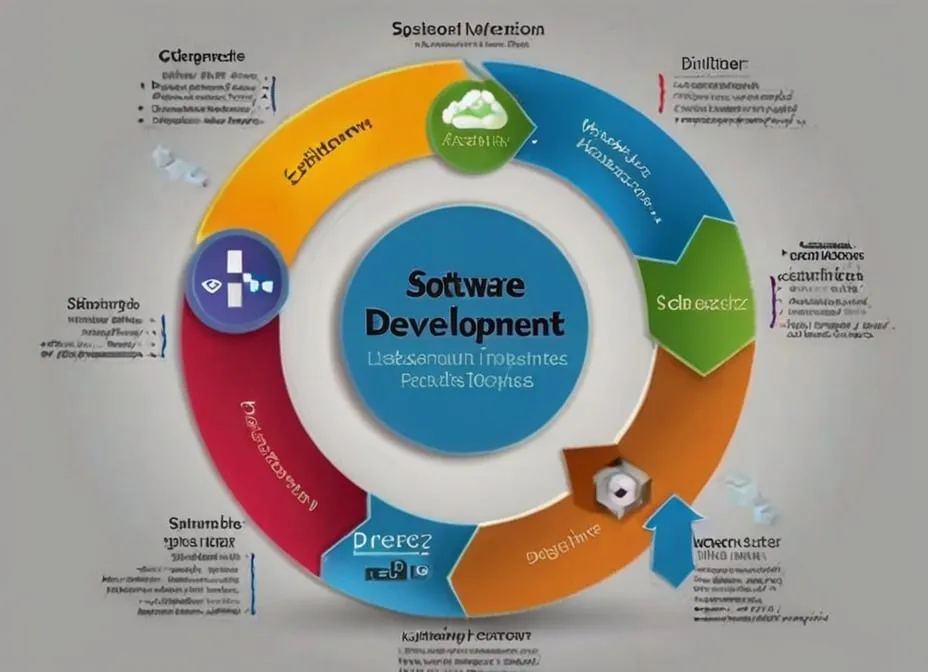Profitable Affiliate Marketing: Earn Through Recommendations
Introduction to Affiliate Marketing
Affiliate marketing has become an increasingly popular way for individuals and businesses to generate income online. At its core, affiliate marketing involves promoting products or services from other companies and earning a commission for every successful sale made through your unique affiliate link. This business model offers a low-risk, potentially lucrative opportunity for those willing to put in the effort and dedication required to build a successful affiliate marketing business.
What is Affiliate Marketing?
Affiliate marketing is a performance-based marketing strategy in which businesses reward affiliates (publishers or influencers) for each customer they refer through their promotional efforts. It's a win-win situation: the merchant (the company selling the product or service) gets increased exposure and sales, while the affiliate earns a commission for every successful referral.
Benefits of Affiliate Marketing
One of the primary advantages of affiliate marketing is its low barrier to entry. Unlike traditional brick-and-mortar businesses, you don't need a significant upfront investment or inventory to get started. Additionally, you have the flexibility to work from anywhere and set your own schedule, making affiliate marketing an attractive option for those seeking financial independence and a better work-life balance.
Another benefit is the potential for passive income. Once you've established a solid online presence and built an audience, your affiliate links and content can continue generating revenue even when you're not actively working.
How Affiliate Marketing Works
The affiliate marketing process typically involves the following steps:
- A merchant (e.g., an online retailer or service provider) creates an affiliate program and sets commission rates for promoting their products or services.
- An affiliate (you) signs up for the merchant's affiliate program and receives a unique affiliate link or tracking code.
- The affiliate promotes the merchant's products or services on their website, blog, social media channels, or other online platforms, using their unique affiliate link.
- When a customer clicks on the affiliate link and makes a purchase, the sale is tracked and attributed to the affiliate.
- The affiliate earns a commission, typically a percentage of the sale or a fixed amount, from the merchant.
Common Affiliate Marketing Business Models
Affiliate marketing can take various forms, each with its own unique characteristics and advantages. Some common business models include:
- Niche Websites: Building a website focused on a specific niche or topic, and promoting relevant products or services through affiliate links and content.
- Product Reviews: Creating in-depth reviews and comparisons of products or services, and including affiliate links for readers to make purchases.
- Influencer Marketing: Leveraging social media influence and a loyal following to promote products or services as an affiliate.
- Coupon and Deal Sites: Curating and sharing discounts, coupons, and deals from various merchants, with affiliate links for users to complete their purchases.
As you explore the world of affiliate marketing, understanding these different models can help you identify the approach that aligns best with your interests, skills, and goals.
Choosing a Profitable Niche
One of the most crucial steps in building a successful affiliate marketing business is selecting the right niche. A niche is a specific market segment or topic area that you'll focus your efforts on. Choosing a profitable niche can mean the difference between struggling to generate income and achieving long-term success.
Passion vs. Profitability
When selecting a niche, it's essential to strike a balance between your passion and the potential for profitability. While pursuing a topic you're genuinely interested in can make the work more enjoyable and sustainable, it's also crucial to consider the potential for monetization.
On one hand, following your passion can make it easier to create engaging content and connect with your audience. However, if the niche has low demand or limited monetization opportunities, it may be challenging to generate substantial income.
On the other hand, choosing a niche solely based on profitability can lead to burnout and a lack of authenticity if you have little interest in the topic. It's essential to find a sweet spot where your passion and the potential for income intersect.
Researching Niches and Demand
To evaluate the potential of a niche, conduct thorough research to understand the demand and competition. Here are some strategies to consider:
- Keyword Research: Use tools like Google Keyword Planner, SEMrush, or Ahrefs to analyze the search volume and competitiveness of keywords related to your potential niche.
- Product and Market Analysis: Investigate the products and services available within your niche, their pricing, and the market size.
- Online Community Exploration: Engage with forums, social media groups, and online communities related to your niche to gauge interest and understand the needs and pain points of your potential audience.
- Competitor Analysis: Evaluate your competitors in the niche, their strengths and weaknesses, and identify opportunities to differentiate yourself.
Remember, a profitable niche should have a balance of high demand, moderate competition, and the potential for recurring or high-ticket product sales.
Analyzing Competition and Market Saturation
Even if a niche appears promising, it's crucial to assess the level of competition and market saturation. A highly saturated market can make it challenging to stand out and attract an audience, even if the demand is high.
When analyzing competition, consider factors such as:
- Number of competitors: How many established players are already operating in the niche?
- Authority and brand recognition: How strong are the existing competitors' brands and online presence?
- Content quality and depth: What is the overall quality and comprehensiveness of the existing content in the niche?
- Unique selling proposition (USP): Can you identify a unique angle or offering that sets you apart from the competition?
While some competition is healthy and indicates market demand, excessive saturation can make it difficult to gain traction and achieve profitability.
Evaluating Monetization Potential
Ultimately, the goal of an affiliate marketing business is to generate income. Therefore, it's crucial to assess the monetization potential of a niche before committing to it.
Consider the following factors:
- Affiliate program availability: Are there reputable merchants offering affiliate programs in your niche, with reasonable commission rates?
- Product pricing and commissions: What are the typical product prices and commission rates in the niche? Higher-priced products or services often offer better earning potential.
- Recurring revenue opportunities: Are there opportunities for recurring revenue streams, such as subscriptions or memberships, within the niche?
- Advertising and sponsorship potential: Can you monetize through advertising, sponsored content, or influencer collaborations in addition to affiliate marketing?
By carefully evaluating these factors, you can increase your chances of selecting a niche with a solid monetization potential, setting the foundation for a profitable affiliate marketing business.
Building an Authority Website
Once you've chosen a profitable niche, the next step is to establish an authoritative online presence through a well-designed and optimized website. Your website will serve as the hub for your affiliate marketing efforts, attracting visitors, building trust, and ultimately converting them into customers.

Selecting a Domain Name and Hosting
Your domain name and hosting provider are the foundation of your online presence. Choose a domain name that is memorable, relevant to your niche, and easy to spell and pronounce. Avoid overly long or complex domain names, as they can be difficult for visitors to remember and type accurately.
When selecting a hosting provider, consider factors such as reliability, speed, security, and customer support. A reputable hosting provider can ensure that your website is always accessible and performs well, which is crucial for attracting and retaining visitors.
Designing a User-Friendly Website
Your website's design and user experience (UX) play a significant role in building trust and encouraging conversions. A well-designed website should be visually appealing, easy to navigate, and optimized for different devices (desktop, mobile, and tablet).
Consider the following elements when designing your website:
- Clean and modern layout: Use a responsive and mobile-friendly design with a clear hierarchy and easy-to-follow structure.
- Consistent branding: Incorporate your brand's colors, fonts, and visual elements consistently throughout the website.
- Intuitive navigation: Ensure that visitors can easily find what they're looking for with a well-organized menu and internal linking structure.
- Fast loading times: Optimize images, leverage caching, and minify code to ensure fast page load times, as slow websites can lead to high bounce rates.
- Trust signals: Include elements such as customer testimonials, trust badges, and secure payment icons to build credibility and trust with visitors.
Investing in a professional and user-friendly website design can significantly improve visitor engagement, increase conversion rates, and ultimately lead to higher affiliate income.
Creating High-Quality Content
Content is the backbone of your affiliate marketing business. High-quality, informative, and engaging content not only attracts visitors to your website but also helps establish you as an authority in your niche, builds trust with your audience, and improves your search engine rankings.
When creating content, focus on the following aspects:
- In-depth and comprehensive: Provide detailed and well-researched information that thoroughly covers your chosen topics.
- Valuable and actionable: Offer practical tips, advice, and solutions that address the needs and pain points of your target audience.
- Engaging and readable: Use a conversational tone, storytelling techniques, and multimedia elements (images, videos, infographics) to keep readers engaged and improve content consumption.
- Optimized for search engines: Incorporate relevant keywords, optimize meta tags, and follow on-page SEO best practices to improve your content's visibility in search engines.
- Consistent and frequent updates: Regularly publish new content to keep your website fresh and provide value to returning visitors.
Remember, the quality of your content directly impacts your credibility, authority, and ultimately, your ability to convert visitors into customers.
Search Engine Optimization (SEO)
Search engine optimization (SEO) is a crucial aspect of building an authority website and driving organic traffic to your content. By optimizing your website and content for search engines, you increase your visibility in search results, making it easier for potential customers to find you.
Here are some key SEO strategies to consider:
- Keyword research: Identify relevant keywords and phrases that your target audience is searching for, and incorporate them naturally into your content and meta tags.
- On-page optimization: Optimize your website's structure, content, and meta tags (titles, descriptions, headings) for your target keywords.
- Technical SEO: Ensure your website is crawlable, has a logical structure, and follows best practices for speed, security, and mobile-friendliness.
- Link building: Acquire high-quality backlinks from reputable websites to improve your website's authority and search engine rankings.
- Local SEO (if applicable): Optimize your website and content for local searches if your business targets a specific geographic area.
By implementing effective SEO strategies, you can increase your website's visibility, attract more targeted traffic, and ultimately drive more affiliate sales.
Promoting and Generating Affiliate Income
Once you've built an authoritative website and created high-quality content, it's time to focus on promoting your affiliate offers and generating income. Effective promotion and marketing strategies are essential for driving targeted traffic to your website and converting visitors into customers.

Driving Traffic to Your Website
Without traffic, even the best affiliate offers and content will fail to generate income. Implement a multi-channel approach to drive targeted traffic to your website, including:
- Search Engine Optimization (SEO): Optimize your content and website for search engines to increase organic traffic from users searching for relevant keywords and topics.
- Social Media Marketing: Leverage popular social media platforms like Facebook, Twitter, Instagram, and Pinterest to share your content, engage with your audience, and drive traffic to your website.
- Email Marketing: Build an email list and nurture your subscribers with valuable content, offers, and updates to maintain engagement and drive traffic.
- Influencer Marketing: Collaborate with influencers or thought leaders in your niche to leverage their existing audience and reach new potential customers.
- Paid Advertising: Consider targeted paid advertising campaigns (e.g., Google Ads, social media ads) to drive traffic and conversions, especially in the early stages of your business.
Diversifying your traffic sources can help ensure a steady stream of visitors and reduce your reliance on any single channel.
Writing Compelling Product Reviews
Product reviews are a powerful way to promote affiliate offers and generate income. By providing in-depth, honest, and valuable reviews, you can help potential customers make informed purchasing decisions while positioning yourself as a trusted authority in your niche.
Here are some tips for writing compelling product reviews:
- Thorough research and firsthand experience: Gain firsthand experience with the product or service you're reviewing to provide authentic and insightful feedback.
- Identify target audience pain points: Understand your audience's needs, concerns, and pain points, and address them in your reviews.
- Provide comprehensive details: Include detailed information about the product's features, benefits, pros and cons, pricing, and any relevant comparisons to competitors.
- Use multimedia elements: Incorporate high-quality images, videos, or infographics to enhance the review and provide a better visual representation of the product.
- Remain objective and transparent: Disclose any potential biases or affiliate relationships, and provide an honest and balanced review, highlighting both positive and negative aspects of the product.
By creating valuable and trustworthy product reviews, you can establish yourself as a go-to resource in your niche, increasing the likelihood of conversions and generating affiliate income.
Optimizing Affiliate Links and Banners
Strategically placing and optimizing your affiliate links and banners can significantly impact your conversion rates and income potential. Here are some best practices to consider:
- Contextual link placement: Place affiliate links within relevant and contextual content, such as product reviews, guides, or comparisons, where they naturally fit and provide value to the reader.
- Clear call-to-action (CTA): Use compelling and clear CTAs that encourage readers to click on your affiliate links and take action.
- Link cloaking and tracking: Use link cloaking and tracking tools to make your affiliate links more user-friendly, track clicks and conversions, and optimize your campaigns.
- Attention-grabbing banners: Design eye-catching and visually appealing affiliate banners that stand out and entice visitors to click.
- A/B testing: Continuously test different link placements, CTAs, and banner designs to optimize your conversion rates.
Remember, while affiliate links and banners are essential for generating income, they should be integrated seamlessly into your content and website, providing value to your audience rather than disrupting their experience.
Leveraging Email Marketing and Social Media
Email marketing and social media can be powerful tools for promoting your affiliate offers, building relationships with your audience, and driving conversions.
Email Marketing:
- Build an engaged email list by offering valuable content, resources, or lead magnets to encourage sign-ups.
- Craft compelling email campaigns that showcase relevant affiliate products or services, provide valuable information, and include clear calls-to-action.
- Segment your email list based on interests, behaviors, or demographics to deliver targeted and personalized content.
- Analyze email metrics (open rates, click-through rates, conversions) to optimize your campaigns and improve performance.
Social Media Marketing:
- Choose the most relevant social media platforms for your niche and target audience, and establish an active presence on those channels.
- Share valuable content, engage with your followers, and participate in relevant communities to build trust and authority.
- Use social media advertising to target specific audiences and promote your affiliate offers or content.
- Leverage influencer collaborations and partnerships to tap into new audiences and increase exposure for your affiliate offers.
- Analyze social media metrics (engagement, reach, clicks, conversions) to optimize your strategies and content.
By effectively leveraging email marketing and social media, you can nurture relationships with your audience, increase brand awareness, and ultimately drive more traffic and conversions for your affiliate offers.
Scaling and Diversifying Your Affiliate Business
As your affiliate marketing business grows and becomes more successful, it's essential to consider strategies for scaling and diversifying your income streams. This approach not only helps mitigate risk but also creates opportunities for exponential growth and long-term sustainability.
Expanding into Multiple Niches
While it's important to start with a focused niche, eventually expanding into related or complementary niches can help diversify your affiliate income streams and reach new audiences. Here are some strategies to consider:
- Conduct market research: Identify related niches with significant demand and monetization potential.
- Leverage existing expertise: Look for niches that align with your existing knowledge and skills, making it easier to create high-quality content and establish authority.
- Repurpose and cross-promote content: Adapt and repurpose existing content for the new niche, leveraging your existing audience and driving cross-promotion between your existing audience and driving cross-promotion between your websites or channels. For example, if you have a successful blog on fitness, you could expand into the health and wellness niche by repurposing some of your fitness content and creating new content specific to nutrition, mindfulness, or alternative therapies.
- Separate websites or content hubs: Consider creating separate websites or content hubs for each new niche to maintain a clear focus and make it easier for search engines to understand the relevance of your content. This approach also helps you build distinct brands and audiences for each niche.
- Utilize content pillars: Organize your content around broad, overarching topics or "content pillars" that can be applied across multiple niches. For example, if your primary niche is personal finance, your content pillars could include budgeting, investing, and debt management, which could extend to related niches like entrepreneurship or wealth-building.
- Collaborate and cross-promote: Collaborate with other influencers, bloggers, or brands in complementary niches to cross-promote each other's content and reach new audiences. This can be done through guest posting, co-creating content, or running joint promotions or giveaways.
- Monitor and adjust: Continuously monitor the performance of your new niche endeavors, tracking metrics such as traffic, engagement, and conversions. Be prepared to adjust your strategies or even pivot if a particular niche is not performing as expected.
- Expanding into multiple niches can be a gradual process, and it's essential to maintain a high level of quality and focus in each niche you pursue. By leveraging your existing expertise and audience, you can diversify your income streams and increase your chances of long-term success in the ever-changing affiliate marketing landscape.
Exploring Different Affiliate Programs
While it's natural to start with a few trusted affiliate programs, diversifying your income streams by exploring new programs can be a valuable strategy. Here are some tips for finding and evaluating new affiliate opportunities:
- Research and compare programs: Look for reputable merchants with competitive commission rates, high-quality products or services, and reliable tracking and payment systems.
- Consider different commission models: Explore programs that offer different commission models, such as pay-per-sale, pay-per-lead, or recurring commissions, to diversify your income streams.
- Leverage affiliate networks: Join popular affiliate networks like Amazon Associates, ShareASale, or CJ Affiliate, which provide access to a wide range of merchants and programs.
- Read reviews and success stories: Research other affiliates' experiences with specific programs to gauge their potential and identify best practices.
- Negotiate better terms: As you build a successful track record, consider negotiating better commission rates or terms with merchants.
By diversifying your affiliate partnerships, you reduce your reliance on any single program and increase your earning potential.
Developing Multiple Income Streams
Affiliate marketing can be just one component of a larger, more diverse online business. Consider developing multiple income streams to create a robust and resilient business model. Some ideas include:
- Creating and selling digital products (e.g., ebooks, courses, software, templates).
- Offering consulting or coaching services related to your expertise.
- Monetizing your website through advertising, sponsorships, or paid memberships.
- Exploring other online business models, such as dropshipping, print-on-demand, or e-commerce.
Developing multiple income streams not only increases your earning potential but also provides a safety net in case one stream underperforms or experiences fluctuations.
Outsourcing and Automating Processes
As your affiliate marketing business grows, you may find yourself stretched thin, trying to handle all aspects of content creation, promotion, and management. To scale effectively and maintain a healthy work-life balance, consider outsourcing and automating certain processes:
- Content creation: Hire freelance writers, designers, or videographers to help with content production, ensuring a consistent flow of high-quality material.
- Virtual assistance: Outsource administrative tasks, such as email management, scheduling, and customer support, to virtual assistants.
- Marketing and promotion: Collaborate with social media managers, SEO specialists, or advertising agencies to streamline and optimize your marketing efforts.
- Automation tools: Implement tools and software to automate processes like email marketing, social media scheduling, and affiliate link tracking.
By outsourcing and automating non-essential tasks, you can focus your time and energy on higher-level strategies and growth initiatives.
Remember, scaling and diversifying your affiliate marketing business is an ongoing process. Regularly evaluate your strategies, adjust your approach, and remain open to new opportunities to ensure long-term success and sustainable growth.
Conclusion
Building a profitable affiliate marketing business requires dedication, persistence, and a willingness to adapt to changing market conditions. By following the strategies outlined in this article, you can increase your chances of success and achieve financial independence through affiliate marketing.
Key Takeaways
- Choose a profitable niche by balancing your passion with market demand and monetization potential.
- Build an authoritative website with high-quality content and a user-friendly design.
- Implement effective SEO strategies to increase your website's visibility and drive organic traffic.
- Promote your affiliate offers through various channels, including content marketing, social media, and email marketing.
- Continuously optimize and test your strategies to improve conversion rates and income generation.
- Scale and diversify your business by expanding into new niches, exploring different affiliate programs, and developing multiple income streams.
- Outsource and automate processes to streamline operations and focus on higher-level strategies.
Overcoming Challenges
Like any business venture, affiliate marketing comes with its own set of challenges. Some common obstacles you may face include:
- Competition: Standing out in a crowded marketplace and differentiating yourself from competitors.
- Algorithm updates: Adapting to frequent search engine algorithm updates that can impact your website's visibility and traffic.
- Affiliate program changes: Dealing with changes in commission rates, terms, or program terminations by merchants.
- Time and effort: Building a successful affiliate marketing business requires significant time, effort, and patience, especially in the early stages.
Embracing a growth mindset, staying up-to-date with industry trends, and continuously adapting your strategies can help you overcome these challenges and achieve long-term success.
Future of Affiliate Marketing
Affiliate marketing is a constantly evolving industry, shaped by technological advancements, consumer behavior, and market trends. Some potential future developments include:
- Increased emphasis on transparency and trust: As consumers become more savvy, there will be a greater demand for transparency from affiliates, including clear disclosure of affiliate relationships and unbiased product reviews.
- Integration of artificial intelligence (AI) and machine learning: AI and machine learning could be leveraged to personalize affiliate offers, optimize content and marketing strategies, and improve user experiences.
- Rise of influencer marketing: Influencer marketing may become more integrated with affiliate marketing, as influencers leverage their engaged audiences to promote products and services.
- New platforms and technologies: The emergence of new platforms, such as voice assistants, augmented reality (AR), and virtual reality (VR), could open up new opportunities for affiliate marketing.
By staying ahead of the curve and adapting to these trends, you can position your affiliate marketing business for continued success in the years to come.
Final Thoughts and Call-to-Action
Affiliate marketing offers a unique opportunity to build a profitable online business by leveraging your skills, expertise, and passion. By following the strategies outlined in this article and consistently providing value to your audience, you can establish yourself as a trusted authority in your niche and generate income through affiliate commissions.
Remember, success in affiliate marketing is not achieved overnight – it requires dedication, perseverance, and a willingness to continuously learn and adapt. Stay focused, stay motivated, and keep refining your approach, and you'll be well on your way to building a thriving affiliate marketing business.
So, what are you waiting for? Start exploring profitable niches, building your online presence, and promoting affiliate products that align with your values and audience's interests. The world of affiliate marketing is vast and full of opportunities – it's time to seize them and embark on your entrepreneurial journey.
Frequently Asked Questions (FAQs)
- How much money can I realistically make with affiliate marketing? The potential income from affiliate marketing varies greatly depending on factors such as your niche, traffic sources, conversion rates, and the commission rates of the programs you promote. While some affiliates earn a modest side income, others have built multi-million-dollar businesses. Your earnings will largely depend on your dedication, effort, and the strategies you employ.
- Do I need a website to be an affiliate marketer? While having a website is not an absolute requirement, it is highly recommended. A well-designed and optimized website can serve as a hub for your affiliate marketing efforts, providing a platform for content creation, lead generation, and product promotion. However, some affiliates have found success through social media, influencer marketing, or other channels.
- What types of products or services are best for affiliate marketing? The most profitable affiliate marketing opportunities often involve products or services with high price points, recurring payments (e.g., subscriptions or memberships), or high commission rates. Popular niches include finance, technology, health and fitness, travel, and e-commerce. However, ultimately, the best products or services are those that align with your niche, expertise, and target audience.
- How long does it take to start seeing results from affiliate marketing? There is no one-size-fits-all answer, as the time it takes to see results can vary greatly. Some affiliates may start earning commissions within a few months, while others may take a year or more to gain traction. Success in affiliate marketing often depends on factors such as the competitiveness of your niche, the quality of your content and promotion strategies, and your ability to build an audience and generate traffic.
- What are the most effective ways to drive traffic to my affiliate offers? Some effective strategies for driving traffic to your affiliate offers include search engine optimization (SEO), content marketing, email marketing, social media marketing, influencer collaborations, and paid advertising (e.g., Google Ads, social media ads). A diversified approach that leverages multiple traffic sources is often recommended for long-term success.










